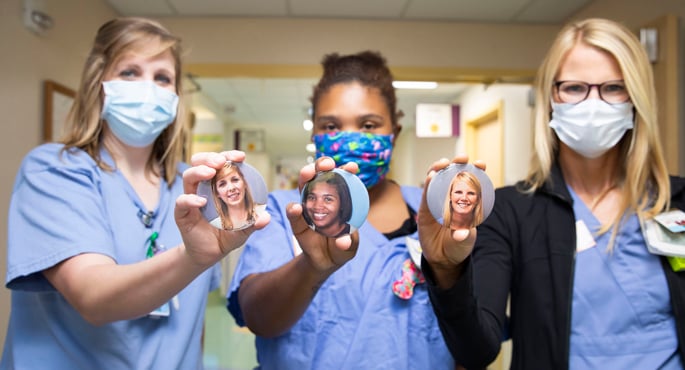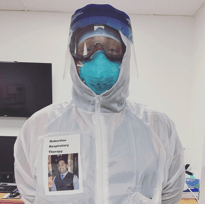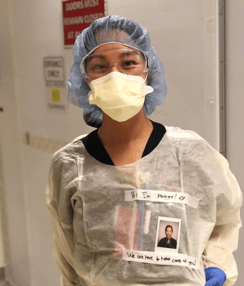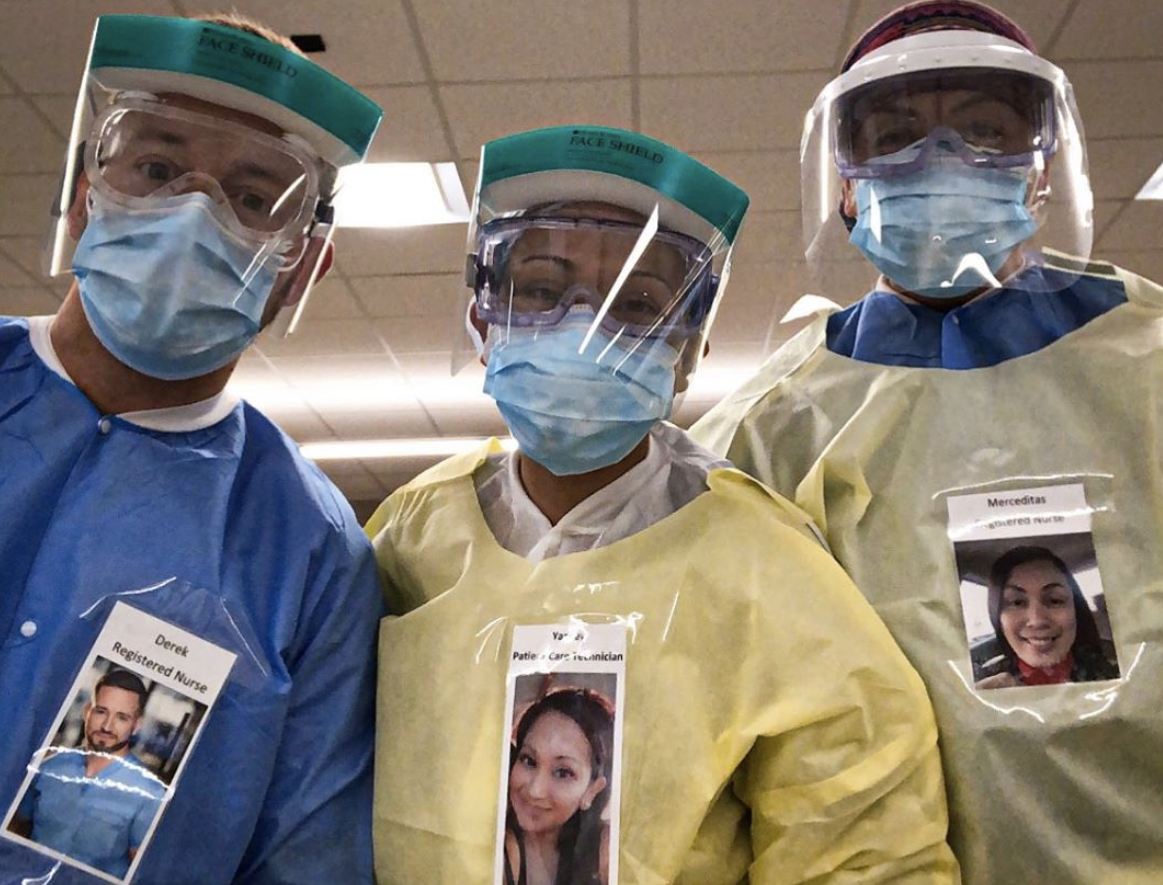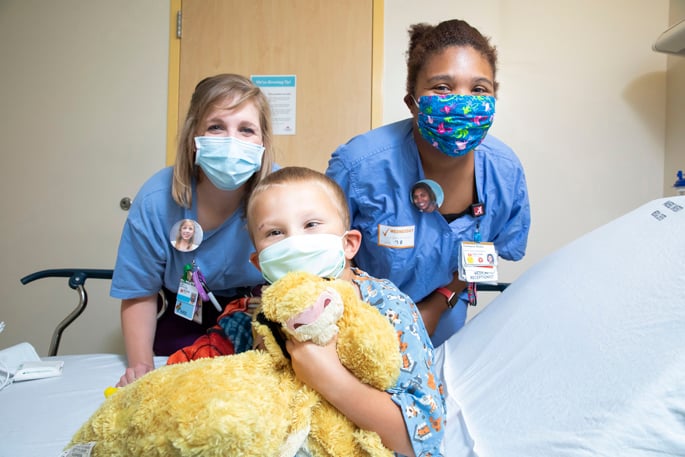Teamwork is a fundamental aspect of the Nursing practice and is essential for providing safe and effective patient care. In healthcare, Nurses collaborate with a diverse team of professionals, including other Nurses, Physicians, Therapists, Pharmacists, and support staff.
Key Aspects of Teamwork in Nursing:
Communication
Communication is the cornerstone of collaboration, ensuring all team members are well-informed and working towards a common goal. Effective communication involves more than conveying information; it encompasses active listening, sharing relevant information, and seeking clarification when necessary.
Active listening is a main component of effective communication. Nurses must attentively listen to their colleagues' viewpoints, concerns, and suggestions. By actively listening, Nurses demonstrate respect for their team members and establish a foundation of trust. This creates an environment where everyone feels valued and encourages the exchange of ideas.
Sharing relevant information ensures all team members have a comprehensive understanding of the patient's condition and care plan. Nurses should provide clear and concise updates, including any changes in the patient's status, medications, or treatment plans. Sharing this information in a timely manner allows the team to make informed decisions and provide coordinated care.
Asking for clarification when needed is another vital aspect of effective communication. Nurses must not hesitate to seek clarification if they are unsure about any aspect of the patient's care or if they need further information to perform their tasks effectively. This proactive approach fosters a culture of openness and collaboration, where questions are encouraged, and knowledge is shared.
Nurses should convey information in a professional and respectful manner, considering the emotions and sensitivities of their colleagues. By maintaining a positive and supportive communication style, Nurses contribute to a harmonious work environment and enhance teamwork.
Collaboration
Collaboration is at the heart of Nursing practice, it allows healthcare professionals from various disciplines to come together and provide comprehensive care to patients. Nurses play a crucial role in this collaborative effort by working closely with Physicians, Therapists, and other members of the healthcare team to develop and implement care plans that address the holistic needs of each individual.
In this collaborative process, Nurses bring their unique perspective and expertise to the table, contributing valuable insights and knowledge that enhance the overall quality of patient care. By actively engaging in interdisciplinary discussions and sharing their observations and assessments, Nurses ensure that all aspects of the patient's health are considered and addressed.

Respect and Trust
Respecting each other's expertise and perspectives is mandatory for effective teamwork. Team members must acknowledge and value the unique skills and knowledge each individual brings to the table. This respect fosters an environment of trust, where team members can rely on one another and work together harmoniously.
Trust is the foundation upon which successful teamwork is built. It is developed through open and transparent communication, where team members feel comfortable expressing their thoughts, concerns, and ideas. By actively listening to one another, respecting different viewpoints, and engaging in constructive dialogue, trust is nurtured and strengthened.
Reliability is another key factor in building trust within a healthcare team. Team members must be dependable and follow through on their commitments and responsibilities. This includes being punctual, completing tasks in a timely manner, and ensuring their actions align with the agreed-upon care plan. When team members can rely on one another, they feel confident in the team's ability to deliver safe and effective patient care.
A shared commitment to patient well-being is the ultimate bond that unites a healthcare team. When team members prioritize the best interests of the patient above all else, trust is reinforced. This commitment involves advocating for the patient, collaborating on care decisions, and continuously striving to improve the quality of care provided.
Role Clarity
Each member of the healthcare team has specific roles and responsibilities that are keys to the overall functioning of the team. Clear delineation of roles helps prevent confusion, ensures tasks are completed efficiently, and contributes to a smoother workflow.
By clearly defining each team member's role, there is a greater sense of accountability and ownership over their specific tasks. This allows for better organization and coordination within the team, as everyone knows exactly what is expected of them. With role clarity, each team member can focus on their own responsibilities, which leads to increased productivity and effectiveness in delivering patient care.
Adaptability
As situations can change rapidly, team members must be able to quickly adapt and respond to emerging challenges. This requires flexibility and a willingness to collaborate on problem-solving.
Adaptability means being open to new ideas and approaches. It involves embracing change and being willing to step outside of one's comfort zone. Nurses who are adaptable understand there is always room for improvement and are constantly seeking ways to enhance their skills and knowledge.
Being adaptable also means being able to think on your feet and make quick decisions when necessary. In high-pressure situations, Nurses must be able to assess the situation, consider all available information, and make informed choices in the best interest of the patient. This requires a calm and composed demeanor, as well as the ability to prioritize and multitask effectively.
Conflict Resolution
This is an inevitable aspect of teamwork, and is needed to address conflicts promptly in order to maintain a harmonious work environment. Constructive conflict resolution involves a combination of open communication, active listening, and finding solutions that benefit both the individuals involved and the team as a whole.
It is important to note conflict resolution is not about winning or losing, but rather about finding a resolution that satisfies all parties involved. This requires compromise, flexibility, and a willingness to consider different perspectives. By finding middle ground and reaching a consensus, conflicts can be resolved in a way that promotes unity and collaboration within the team.
Continuous Improvement
This involves a commitment to consistently evaluating and enhancing the quality of patient care. By engaging in ongoing evaluation and quality improvement efforts, healthcare professionals can ensure they are providing the best possible care to their patients.
Regular team meetings provide an opportunity for team members to come together and discuss various aspects of patient care. These meetings allow for open and honest communication, where team members can share their experiences, challenges, and successes. By sharing insights and lessons learned, the team can identify areas for improvement and develop strategies to address them. Team meetings also foster a sense of unity and collaboration, as everyone works together towards a common goal of providing optimal patient care.
Feedback sessions are another important component of continuous improvement. These sessions involve giving and receiving feedback on individual and team performance. Constructive feedback allows team members to identify their strengths and areas for growth, as well as receive guidance on how to enhance their skills and knowledge. By providing feedback in a supportive and constructive manner, team members can feel empowered to make positive changes and contribute to the overall improvement of the team.
Effective teamwork in Nursing is a collaborative effort that involves clear communication, respect, trust, and a shared commitment to patient-centered care. Nurses play a central role in fostering positive teamwork and contributing to the overall success of the healthcare team.



